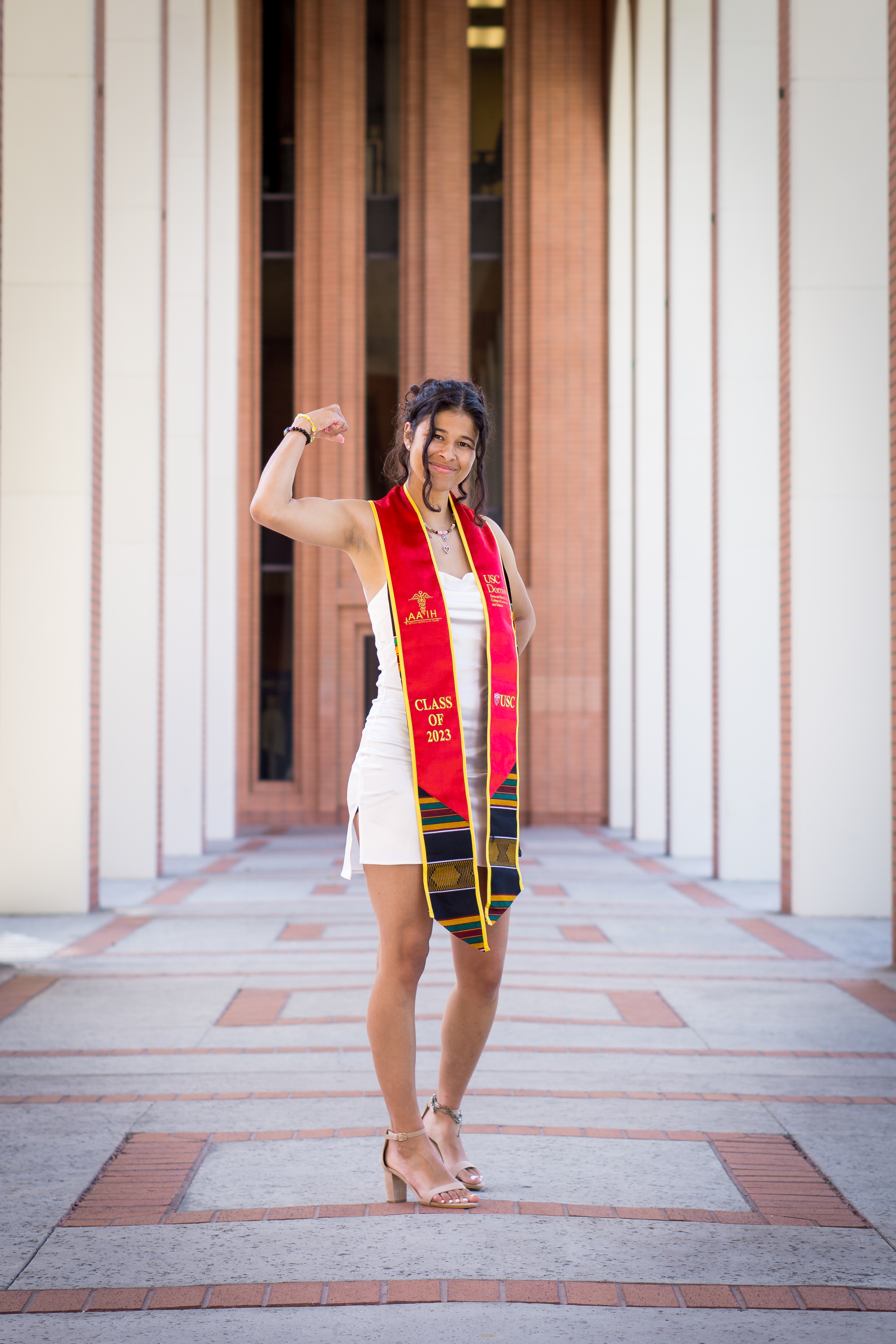Selah: From Sorrow to Survivor
A liver transplant saved Selah's life and inspired a future in medicine.
When Selah Kitchiner was 13, she was diagnosed with end-stage liver failure, a rare and life-threatening condition for someone so young.
It was a tumultuous time for the Kitchiner family. Selah’s father, Damon, was terminally ill. After three years in remission, an aggressive bone cancer had returned and spread throughout his body.
Damon had decided to decline treatment. Demoralized by his first cancer care experience, he had become wary of doctors and suspicious of the health care system. He wanted to spend his remaining time at home with his wife and three daughters.
When Selah’s own health suddenly declined, Damon feared that his daughter would have a similar experience. At first, there was no clear cause of Selah’s symptoms. She bounced from hospital to hospital, doctor to doctor, one diagnosis to another, until a Sacramento physician finally determined that her liver was failing.
A Surrogate Family
Her health precarious, Selah needed to be hospitalized until a donor organ became available. In January 2015, she was one of the first patients admitted to the brand-new UCSF Benioff Children's Hospital San Francisco at Mission Bay, which had opened just days earlier. The Pediatric Liver Transplant Program is one of the leading liver transplant centers in the country.
At home in the Sacramento Valley, Damon was dying. More than 100 miles away in the Bay Area, Selah was alone in a hospital room. Her mother, Lanette, spent the day taking care of Damon, Selah’s two sisters, and the household affairs. Every evening, Lanette made the two-hour drive to San Francisco to spend the night at Selah’s bedside. In the morning, she would drive back to Sacramento.
By day, Selah’s caregivers at UCSF became her surrogate family. “There was so much going on, so much instability,” she says. “But my medical team always made me feel better. They gave me answers when they could, a hug when I needed it. They made me feel cared for. They lifted me up.”
Selah focused her thoughts on Damon and her family. “Worrying about him made it easier not to worry about myself,” she remembers. Unable to visit each other, father and daughter spoke on the phone every night.
Grief and Healing
One month into Selah’s hospitalization, Damon passed away. As the rest of the family grieved together in Sacramento, Selah struggled to stay hopeful in San Francisco, but the reality of her situation sank in. “When we were going through it together, it almost felt like nothing could happen to either of us,” she recalls. “When something did happen, I wondered what it meant for me. Was I going to die too?”
Early one morning, a few weeks after Damon passed, a nurse gently woke Selah. A liver had become available. Three hours later, Selah would become the first patient to receive a solid organ transplant at UCSF’s new children’s hospital.
Her recovery was smooth. Selah was walking around the neighborhood weeks after the procedure. During the rehabilitation, her grief was tempered by gratitude. “I knew how lucky I was,” she says. “I wasn’t guaranteed to come out of this, so once I did, I just felt so grateful.”
Selah’s Dream
Selah is now 22. Nearly a decade has passed since her father died and she got a new liver. Earlier this year, Selah graduated from the University of Southern California and began applying to medical schools.
Selah has also spent much of the past decade as a public advocate for organ donation. Her activism has focused on dispelling medical mistrust within the Black community, which has its roots in the long history of medical mistreatment of Black Americans. Selah believes that medical mistrust played a role in Damon’s decision not to pursue cancer treatment, as well as his fear that Selah would also be mistreated by health care providers because of the color of her skin.
“I don’t think my dad felt very cared for by his medical teams,” she says. “If he had, maybe he wouldn’t have been so afraid to go through treatment again. When I was bouncing between hospitals, I didn’t feel very acknowledged either. But by the time I got to UCSF, I realized health care doesn’t need to be this scary thing. My experience at UCSF was all the good parts of health care. It was so inspiring.
“That’s why I want to be a doctor. I want to be that person for someone else – for the young woman who feels she’s been neglected, or a Black person who feels they haven’t been cared for, or a 13-year-old girl who is sitting in the window, just looking for some hope.”
In honor of her triumph over adversity, Selah was awarded the 2023 Colin Powell Medal of Courage at the Dreamfest Concert for Kids. She hopes to use her platform to inspire others to work together for more equitable health care.
